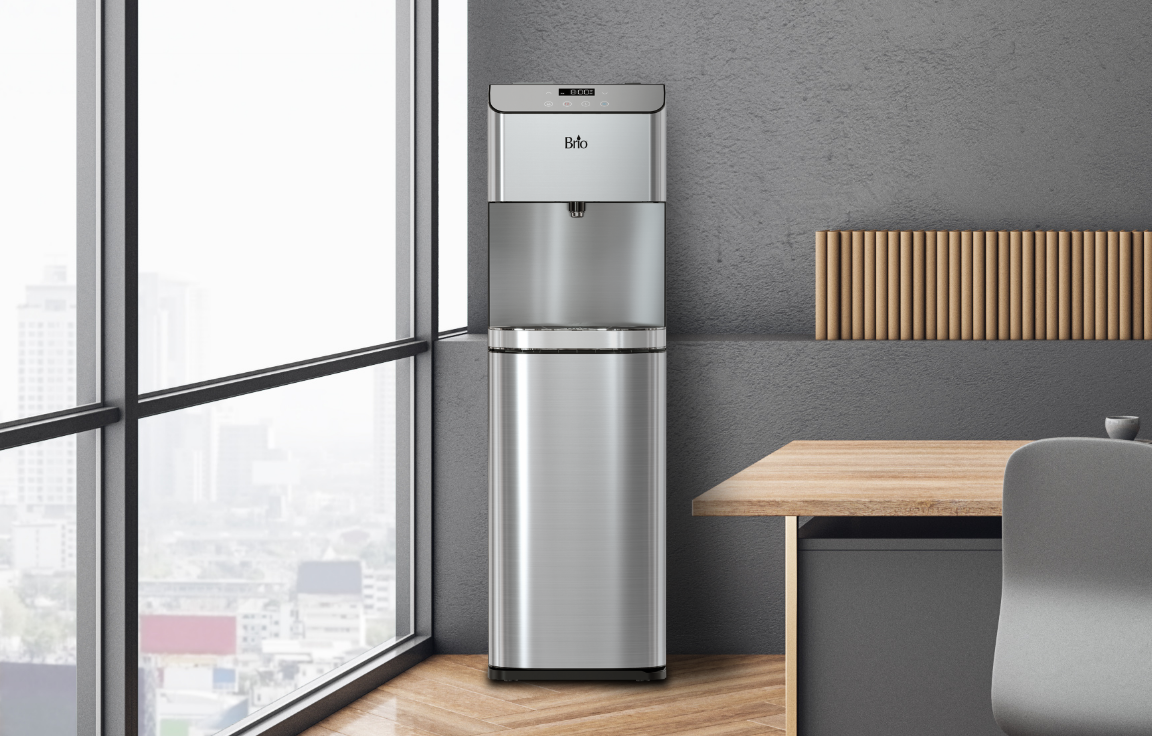Are you drinking enough water? Not being hydrated enough can lead to all sorts of health issues. According to the CDC, some of the health problems dehydration can cause include the following:
- Changes in mood
- Kidney stones
- Cognitive issues, such as trouble thinking clearly
- Constipation
And these effects can get worse. In fact, dehydration is a frequent cause of hospital admission in the U.S.
Not having enough water makes it much harder for your immune system to function — putting you at an increased risk of getting sick from viruses, bacteria, and other germs.
But what exactly is the connection between water intake and immune function? Understanding the importance of water for immunity can help you see why staying hydrated matters so much for your well-being.
The Importance of Hydration

Did you know that around 60% of your body is made of water? You need it for all kinds of bodily functions, including the following:
- Regulating your body temperature
- Eliminating waste
- Keeping your organs, joints, and tissues hydrated and functioning smoothly
- Carrying oxygen and nutrients to your cells
Water and health benefits go hand in hand — but how much water do you need daily? The National Academies of Sciences, Engineering, and Medicine recommends the following daily water intake:
- 2.7 liters for women
- 3.7 liters for men
Remember that you may need to adjust your daily intake based on other factors, such as whether or not you’re currently ill or how much physical activity you get. Sometimes, you’ll need to replace fluids your body loses, such as when you sweat.
What Is the Immune System?
You might not realize how many germs and microbes your body is exposed to daily. That’s because your immune system works hard to protect you from potentially harmful ones that can cause infections or illness.
This bodily system makes antibodies that target and destroy pathogens, such as viruses and bacteria, that can make you sick. Your lymphatic system makes immune cells, such as white blood cells, that travel around looking for harmful germs and microbes.
How Hydration Affects the Immune System

Is water necessary for immune function?
Yes, your cells need hydration to function. That’s why hydration benefits for immunity include many functions and systems throughout your body — from nutrient transportation to waste elimination.
Your immune system cells, such as red blood cells and white blood cells, need to be able to receive signals that help them find and destroy pathogens. But they can’t function effectively if they’re not hydrated enough.
Hydration and the lymphatic system also have a strong connection. Lymphatic fluid needs a way to move around your body, searching for pathogens or other harmful microbes and destroying them. Drinking enough water helps keep this fluid in motion.
When you’re not getting enough water, this can affect your immune response in the following ways:
- More difficult for white blood cells to travel around and fight germs
- Higher vulnerability to illnesses and infections
- Slower recovery from infections and illnesses
- Disrupted signals to immune cells, slowing their response time
Have you ever had a headache from not drinking enough water? That’s your body’s way of telling you that it needs hydration.
Scientific Evidence Supporting the Link Between Hydration and Immune Health

Research studies back up the connection between hydration, dehydration, and immune health.
Studies show that even mild dehydration — losing just 1 to 2% of body water — can impair immune response and cognitive functions.
Staying hydrated is also essential for gut health, which is linked to immune function. A 2024 study found that inadequate water intake can decrease immune cells and alter how T-cells function in the digestive system.
A recent study from 2023 offers additional evidence for the role of water in the body. This study found that water and ions that reach immune cells allow them to move to where needed throughout the body.
Practical Tips for Staying Hydrated

Eating healthy foods and taking an immune health supplement can help boost immunity. However, you still need to stay hydrated for optimal immune function.
How can you ensure you get enough water to keep your immune system strong? The following hydration tips for better health can help:
- Watch your daily water intake: Drink extra if you do workouts or spend time in hot and/or humid environments. You’ll also need more water if you’re pregnant or nursing.
- Increase your water intake: Keep a tumbler or thermos of cold water to increase access to water. If needed, set up reminders to drink water throughout the day.
- Eat water-rich foods: Water is not the only thing that keeps you hydrated. For hydration, include foods with high water content in your daily diet, such as melons, strawberries, peaches, plain yogurt, broccoli, and broth.
- Recognize the signs of dehydration: Headaches, dry mouth, dark urine, severe thirst, dizziness, fatigue, and less frequent urination are all symptoms that may indicate dehydration. If you have any of these signs, increase your water intake or drink sports drinks with electrolytes.
Knowing more about the role of water in the body and the link between your immune system and hydration can help you appreciate just how essential water is for your well-being. Drinking enough or getting it through water-rich foods helps your immune system do its job. Stay hydrated to enjoy better immune health — and better overall health.

At Brio Water, we provide simple and convenient ways to help you stay hydrated. Check out our high-quality water filtration products for your home or on the go.













































































